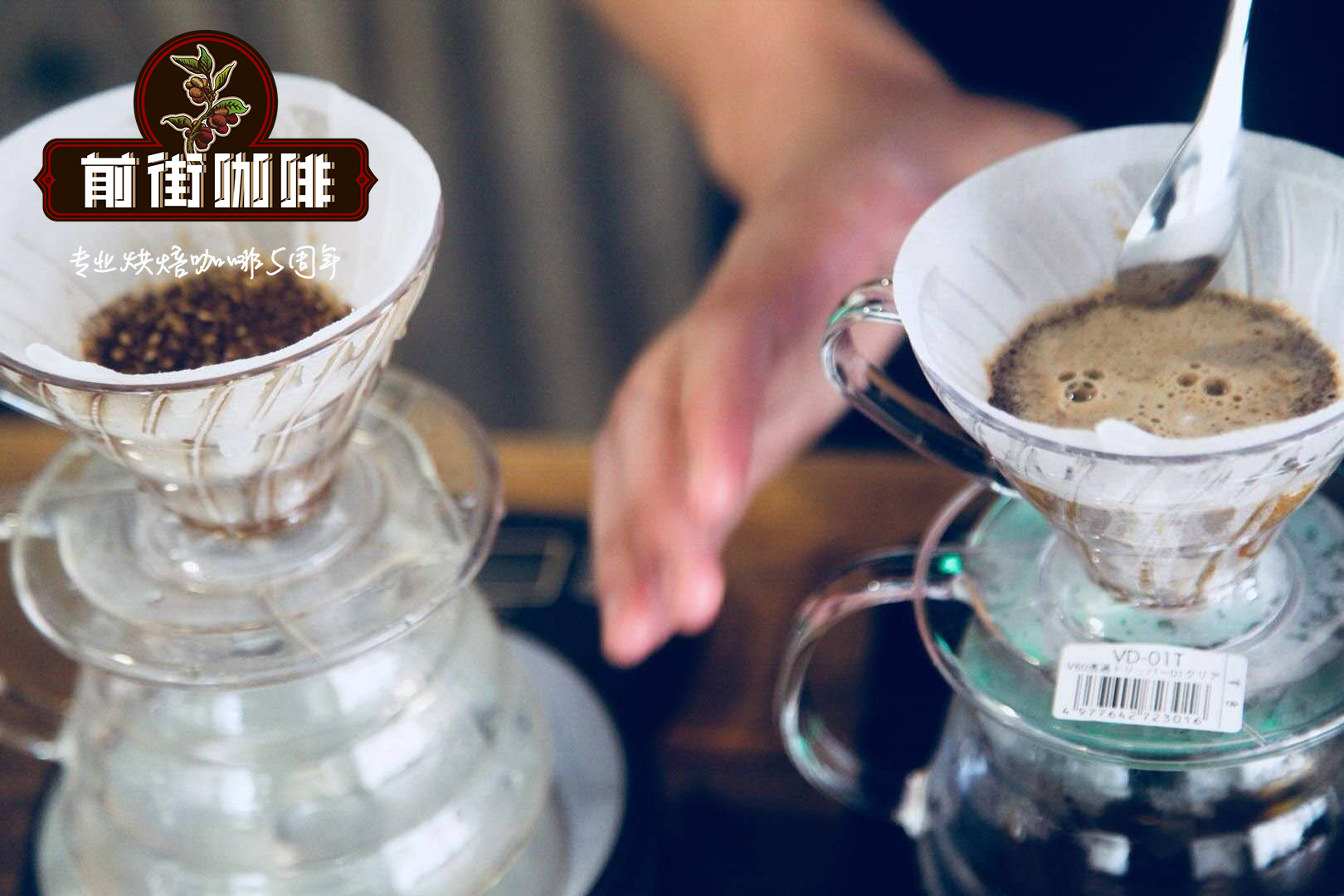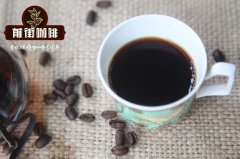What kind of utensils are suitable for brewing Humbera Coffee beans? description of the characteristics and flavor of Hambela Huakui 6.0 coffee story

Professional coffee knowledge exchange more coffee bean information please follow the coffee workshop (Wechat official account cafe_style)
Ethiopian Sidamo Shakisso Natural Huakui coffee bean
01 | brief introduction of Huakui coffee bean producing area
Hambella (commonly translated as Humbela) is located in GUJI, the largest coffee producing region in Ethiopia, and the administration is subordinate to the state of Oromia. The west of Hambella is across the mountain from kochore. The two producing areas are separated by highlands with an elevation of 3200 meters and a width of about 30 kilometers, and are connected with the shakiso,Uraga and Kerchaz producing areas of Guji in the east and south, respectively. It is the highest coffee producing area in Ethiopia (Harrar is the main producing area in Ethiopia).
At present, there are about 20 processing plants of various sizes in Hambella producing areas. Dimtu, the core production area of Hambella of DW Company, has four manor processing plants, namely "Buku abel", "Buku saysay", "Haro soresa" and "Tirtiro Goye".
Of all these estates and processing plants, only the sun-tanned coffee from the "Buku Abel" manor and processing plant is called "Sakuran Coffee beans".
Buku Abel is a small village surrounded by mountains on the African continent at an altitude of 2280 meters. December is its coffee harvest season. At this time, the mountains are covered with red and mature coffee cherry, and the village is neatly arranged on African tanning beds. This is where the "Huakui coffee beans" are treated.
Raw bean information
Product name: Ethiopian sun Sidamo G1 Sakuran coffee beans
Ethiopian Sidamo Shakisso Natural
Coffee producing countries: Africa Africa, Ethiopia Ethiopia
Coffee Manor: Guji Guji, Hambella Wamena area, Dimtu City, buku able Manor
Coffee variety: Heirloom, native to Ethiopia
Production altitude: 2250-2350m
Quality level: G1
Treatment: Natural tanning (African drying bed)
Award winning situation
Winner of the harvest season Ethiopia National Taste of Harvest Competition (Ethiopian Coffee Competition) in 2016 / 2017
Runner-up in 2017 Regional Africa Taste of Harvest Competition (African Coffee Raw Bean Competition)
02 | processing method of Huakui coffee beans
In the harvest and treatment season (December-January), its unique growth environment and natural climate created the unique flavor of Huakui. The sugar content of the red fructose we are picking is more than 30 before we start sun treatment. In the first two days of the sun, it is necessary to ensure the humidity of the red fruit so that its fructose fully begins to ferment. At the same time, the high-altitude geographical location, so that the night temperature of the treatment plant can be reduced to about 12 degrees Celsius, and will not produce the smell of excessive fermentation because the temperature is too high. When the temperature is relatively high at noon, we will cover in time to prevent sunburn of red fruit.
From the beginning of cultivation, it has been chosen as a noble "family environment"-rich humus reddish brown soil, and given shade and care to "Enset" tree species, so that Sakui receives sufficient sunlight and produces rich flavor without consuming too much nutrients, thus retaining more essence in the inside of the coffee fruit.
Choose only all red fruits, fully ripe coffee cherries, all manual picking, African scaffolding to dry, limit the thickness of the fruit layer and turn it regularly for 24 hours to ensure uniform sun exposure and ventilation and a more accurate grasp of the fermentation degree.
In order to prevent sudden rain at night, it will be wrapped in thick plastic sheeting. In this way, the red fruit is fermented and dehydrated at a lower temperature. After 18 days of sun treatment, when the moisture content of raw coffee beans is reduced to about 13%, stop sun treatment, put it in sacks, put it in the warehouse under natural conditions of 12-22 degrees Celsius and 40-50% humidity, raise raw beans and further dehydrate for about 50 days. When the moisture content of raw beans reaches about 10, the transportation treatment plant will be shelled and screened for sale.
03 | Analysis of raw beans in Huakui Coffee
The varieties are native species, small granule species, with a round appearance and a small bean body, mostly between 14 and 15 orders.
Sun Sidama: the bean body is smaller than Longberry and yellowish in green. There is a great difference in particle size.
Washed Sidamo: coffee raw bean green with a slight cyan color. There is a great difference in particle size.
[sun Huakui cooked beans]: the degree of baking is light, the color is light, and there is no silver skin.
[washed Huakui cooked beans]: the baking degree is slightly darker, the color is slightly darker, and there is silver residue in the middle line.
04 | roasting analysis of Huakui coffee beans
Beans with such a gorgeous flavor are certainly not suitable for deep baking, so the shallow slow roasting method of this coffee can best reflect its round and sweet, rich flower and fruit aromas.
This coffee has relatively small particles, moisture content, heat absorption in the baking process is also relatively large, the Mena reaction process is also relatively fast.
In the first baking, the temperature of my beans is relatively high. Before the coffee beans are dehydrated and yellowed, I use 160 firepower to ensure that there is enough heat to last until the first explosion, develop directly to the second explosion, and determine the development of the area line.
In the second, third and fourth baking, the same bean temperature of 200, the same firepower, in the baking process gradually reduce firepower as needed.
This stove is a shallow roast for quick frying:
Cup test:
Baking curve 2: toast, withered grass
Baking curve 3: berries, nuts
Baking curve 4: fermented wine, cream, tropical fruit, jackfruit
So we set curve 4.
Bake Curve 4, specific operation:
Using "Nordic baking", the furnace temperature is 200 degrees Celsius into the pot, the throttle is set at 3.5 degrees Celsius, the firepower is adjusted to 160 degrees after 1 minute, the throttle is unchanged, the firepower is adjusted to 140 degrees, baking to 5: 18 ", the temperature is 154 degrees, the bean watch turns yellow, the smell of grass disappears completely, dehydration is completed, the firepower is adjusted to 105 degrees, and the throttle is opened to 4 degrees.
In the 8th minute, ugly wrinkles and black markings appear on the bean table, and the smell of toast obviously changes to the smell of coffee, which can be defined as a prelude to an explosion. At this time, listen carefully to the sound of the explosion point, start to explode at 8: 37 ", adjust the firepower to 80 degrees, and the throttle is fully open (adjust the firepower to be very careful, not so small as to be free of bursting sound), and put the pot at 198.1 degrees.
04 | Analysis of brewing of Huakui coffee beans
The flavor of Huakui coffee beans
Huakui coffee beans are recommended to be brewed by hand and siphon pot.
As for the way of brewing, hand brewing and siphon brewing are the best. When you grind the beans, you can smell the sweet smell of the sun fruit.
Gentle and delicate, sweet and lovely. Huakui coffee beans exude extremely complex aroma, showing an extremely excellent taste, which is difficult to describe.
V60 filter cup, 15g powder, water temperature 89 degrees, grinding 3.5
The ratio of water to powder is close to 1:15
Steaming in 30 grams of water for 28 seconds
Segment: 30,10590, time is 2:03 (steaming starts)
Palate: smooth, layered, sweet fermented berries
The taste of the wet ripe berry fruit fermented wine is amazing, the entrance is extremely smooth, to the delicate mellow thickness, the sour and sweet appearance of the ripe fruit is really amazing, the sweet feeling is outstanding, clean, the finish rhyme performance is also quite good.
Huakui coffee bean brand recommendation
Qianjie coffee roasted Huakui coffee beans are fully guaranteed in terms of brand and quality. And more importantly, the performance-to-price ratio is extremely high, a pack of 227 grams, the price is only 98 yuan. According to the calculation of 15 grams of powder per cup of coffee, a bag of coffee can make 15 cups of coffee, which costs only about 6 yuan per cup, which is recommended by conscience compared to the price sold in cafes for dozens of yuan a cup.
Important Notice :
前街咖啡 FrontStreet Coffee has moved to new addredd:
FrontStreet Coffee Address: 315,Donghua East Road,GuangZhou
Tel:020 38364473
- Prev
Flavor characteristics of Sidamo Flower Kui soe Coffee Bean comparison of Sakura 3.0 4.05.0 and 6.0 Coffee Taste
Professional coffee knowledge exchange more coffee bean information please follow coffee workshop (Wechat official account cafe_style) Sakuran is the title of the top geisha in Edo period in Japan, unlike modern ones, Sakuran does not climb step by step according to the level of tourist girls, but chooses the daughters of fallen aristocrats or folk girls.
- Next

How to drink "expired" coffee? How much does coffee cost?
Professional coffee knowledge exchange More coffee bean information Please pay attention to coffee workshop (Weixin Official Accounts cafe_style) What is expired coffee? When we say expired coffee, we mean coffee that has passed its best tasting period. What is coffee expiration date? Coffee shelf life, also known as taste life, refers to the best taste of coffee, not food shelf life (usually manufacturers)
Related
- Detailed explanation of Jadeite planting Land in Panamanian Jadeite Manor introduction to the grading system of Jadeite competitive bidding, Red bid, Green bid and Rose Summer
- Story of Coffee planting in Brenka region of Costa Rica Stonehenge Manor anaerobic heavy honey treatment of flavor mouth
- What's on the barrel of Blue Mountain Coffee beans?
- Can American coffee also pull flowers? How to use hot American style to pull out a good-looking pattern?
- Can you make a cold extract with coffee beans? What is the right proportion for cold-extracted coffee formula?
- Indonesian PWN Gold Mandrine Coffee Origin Features Flavor How to Chong? Mandolin coffee is American.
- A brief introduction to the flavor characteristics of Brazilian yellow bourbon coffee beans
- What is the effect of different water quality on the flavor of cold-extracted coffee? What kind of water is best for brewing coffee?
- Why do you think of Rose Summer whenever you mention Panamanian coffee?
- Introduction to the characteristics of authentic blue mountain coffee bean producing areas? What is the CIB Coffee Authority in Jamaica?

